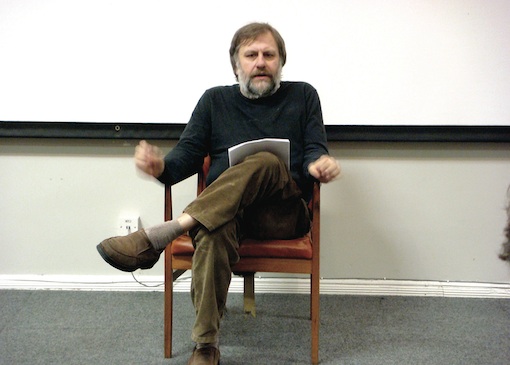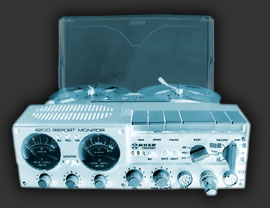The aim of Backdoor Broadcasting is to aid the dissemination of new knowledge produced on audio by universities and learned societies. Dr René Wolf provides a profile of his company’s activities.
About the author: Dr René Wolf is the Backdoor Broadcasting director and proprietor, who set up the Company in May 2008. He is a radio historian and teaches Modern European History at Royal Holloway University of London. His publications include: The Undivided Sky: The Holocaust on East and West German Radio in the 1960s (Palgrave Macmillan, 2010); ‘Mass deception without deceivers? The Holocaust on East and West German Radio in the 1960s’ in Journal of Contemporary History, 41, 4 (October 2006); ‘Judgement in the Grey Zone: The Third Auschwitz (Kapo) Trial in Frankfurt 1968’ in Journal of Genocide Research, 9,4 (December 2007); ‘The Undivided Sky. The Auschwitz Trial on East and West German Radio’ in Martin Davies and Chris C.W. Szejnmann (Eds.), 60 Years on: How the Holocaust looks now (Palgrave Macmillan, 2006).
Backdoor Broadcasting’s origins are partially opportunistic, partially anecdotal and partially serendipitous. The opportunity to engage in something like academic podcasting as an independent company had been long overdue. But it was only through an anecdotal remark by Professor Justin Champion, my then head of department at Royal Holloway that started the ball rolling. In the corridor one afternoon, Justin mentioned a seminar he had been to at the Institute of Historical Research, lamenting the fact that it had not been recorded as it was an outstanding paper but with very few people in attendance. Knowing of my involvement in all things radio, he said jokingly, ’René, you know how to record stuff like that and put it online, don’t you?’ I said yes, but didn’t give it much thought until several application forms later. Yes, why not. There are numerous seminars and conferences every day of the year and all of them want a greater audience. And this is where serendipity really comes into it, because once we started this, I was amazed how many people, and from all over the world, were so keen to listen, every day, from everywhere, new listeners, all the time. We have received grateful comments from happy students and scholars and of course, after a while, some very keen academics trying to get their research to a wider public.
… there are numerous seminars and conferences every day of the year and all of them want a greater audience
But perhaps I should start with a little more detailed information about myself, and my company, Backdoor Broadcasting. I came to academic study rather late in life, starting my first degree at the age of 36, having previously run a jazz club in London for ten years. I then continued to study until I finished my PhD in 2006. My research topic, the use of radio in the ideological warfare between East and West Germany, not only acquainted me with the technology (I had some unofficial encounters with pirate radio in the 1980s and 90s), but also with media theory and thoughts about the future of the radio medium. This is perhaps why I did not persist with those application forms for lectureships and JRFs. I could see the opportunity for academia to be a major content provider for internet radio, and that it would also be near-impossible for universities to embark on such a venture by themselves without spending a fortune. Whereas a small, flexible and mobile enterprise could go around from conference to seminar, from workshop to symposium, recording and editing and placing the material on the net in a matter of hours or days.

Podcasts from Backdoor include several contributions from philosopher Slavoj Žižek. (Image © Andy Miah)
I began with people I know at Royal Holloway’s Humanities and Arts Research Centre (HARC) as they had a number of well known speakers engaged for their season of talks (David Harvey, Toril Moi, Judith Butler, to name just a few), and these were our first recordings. At the time we had envisaged that many people would like to listen live, and as well as recording the talks, so we also streamed them on the internet in real time. This, by the way, appears to have fallen away mostly. The majority of institutions and speakers prefer not to be broadcast ‘live’. We branched out into other departments at Royal Holloway and Birkbeck College. The initial set-up had been a very informal arrangement between a couple of friends – one of them is the webmaster of the website, and he lives in the People’s Republic of China – but soon I found myself in the position of hiring a couple of student helpers to do the recordings.

As I had very little start-up capital, the technology we used initially was very simple: a £200 laptop, an external soundcard, recording software and a couple of £30 microphones. And the result was astonishing: not only was every word audible and crisp and clear, but also our recordings to us seemed infinitely better than any offered by any of the universities on iTunesU or the universities’ own media output. As they could spend thousands, even tens of thousand of pounds, on equipment and on the production of podcasts, this was rather baffling. How could this be explained?
The answer to this riddle was not one of equipment, or money spent or not spent but rather lay in the structures and the management of academic institutions. For a university research group to record a seminar and to have it put online will involve a great number of people and departments, from the A/V guys to the IT people, Media Arts, or ‘the expert’ to edit content, then a historian to archive, then IT again to place on the right webpage, and of course any number of men in suits to throw more obstacles in the way of universities’ remit of disseminating their research.
… we are always looking for original and innovative ways of disseminating research
Additionally I was aware – from having taught in a number of university departments – that the service offered had to be un-bureaucratic, fast, and above all cheap. Cheap enough in fact that departments and individual research centres could take this out of their everyday budget/petty cash so not to trouble the ‘men in suits’. Up until very recently we still charged only £1 per recorded minute, all-inclusive. This initially meant that we were running at a considerable loss, particularly due to the necessity of drawing up the legal agreements and contributor’s waiver was expensive. In addition there was the cost of having a dedicated server and secure website with a decent database.
But this model is starting to pay off now. We have established ourselves throughout the UK with a good number of universities and learned societies becoming regular customers. We can cover huge conferences with multiple parallel panels over a number of days, seminar series, live broadcasts, as well as designing websites for research groups and projects, like the Landscapes of Secrecy: The CIA in History, Fiction and Memory which we covered at the University of Nottingham in April 2011.
![]() We are always looking for original and innovative ways of disseminating research. When I am not out recording, or stuck in front of a computer editing, I read (most of) the literature by the Research Councils and funding bodies on the issues of ‘Impact’ and Public Engagement’, as this is really what we are about. And, for the ‘men in suits’, we even deliver ‘Impact’ in terms of listener/download numbers and website visitors.
We are always looking for original and innovative ways of disseminating research. When I am not out recording, or stuck in front of a computer editing, I read (most of) the literature by the Research Councils and funding bodies on the issues of ‘Impact’ and Public Engagement’, as this is really what we are about. And, for the ‘men in suits’, we even deliver ‘Impact’ in terms of listener/download numbers and website visitors.
If you have not been to the website yet, you can visit us at: http://backdoorbroadcasting.net/. Perhaps the best place to start would be either the news page or the archive. There is also a 24-hour stream with random selections from the archive, which can be accessed by clicking on the radio player on the right. At present we have over 2000 visitors/250 downloads a day, and the numbers are steadily rising. Recording costs are £1.20 per recorded minute plus travel costs, with a minimum of 90 minutes. All recordings carry a Creative Commons licence and are free to the listener.
The aim of Backdoor Broadcasting is to help in the dissemination of new knowledge produced by the universities and learned societies, and, so far, I think we are doing this rather well.
Dr René Wolf Backdoor Broadcasting Company Ltd http://backdoorbroadcasting.net/
